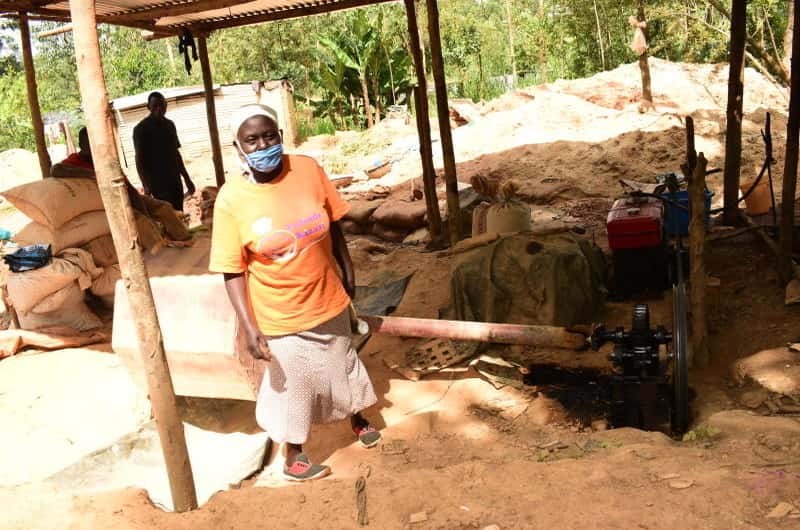×
The Standard e-Paper
Kenya’s Boldest Voice

Cyphrose Birukha operates a stone crushing machine at Rosterman Gold mining site in Kakamega county yesterday. [Mumo Munuve, Standard]
A group of women is busy cleaning gold ores at the Rosterman artisanal gold mines on a sunny afternoon.